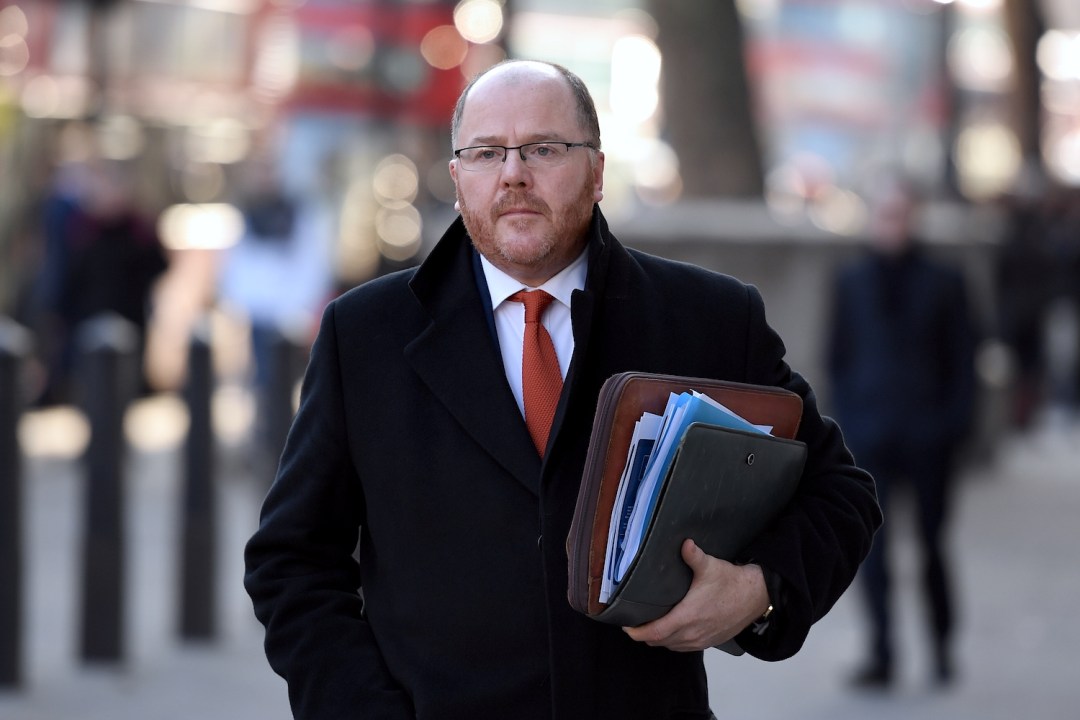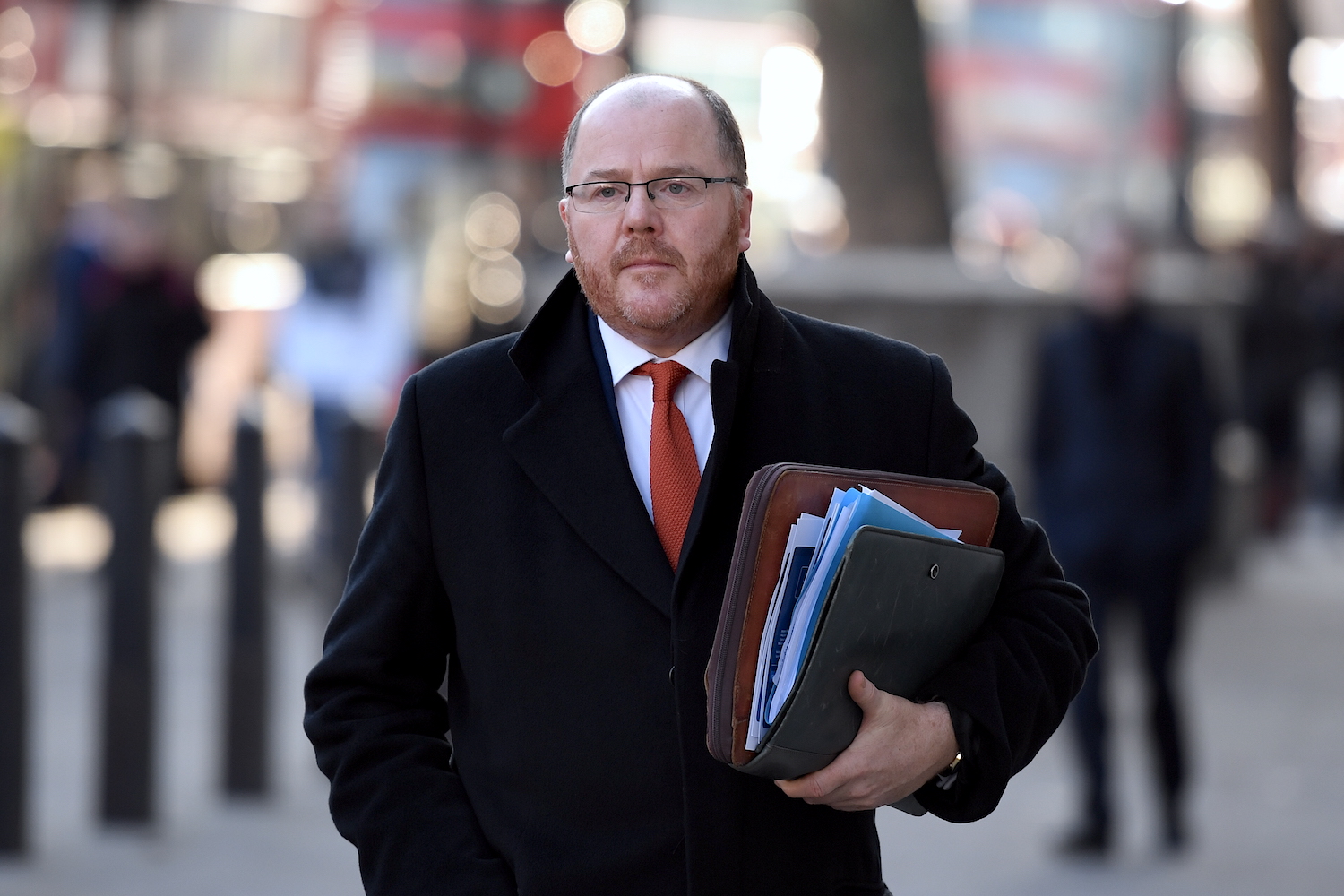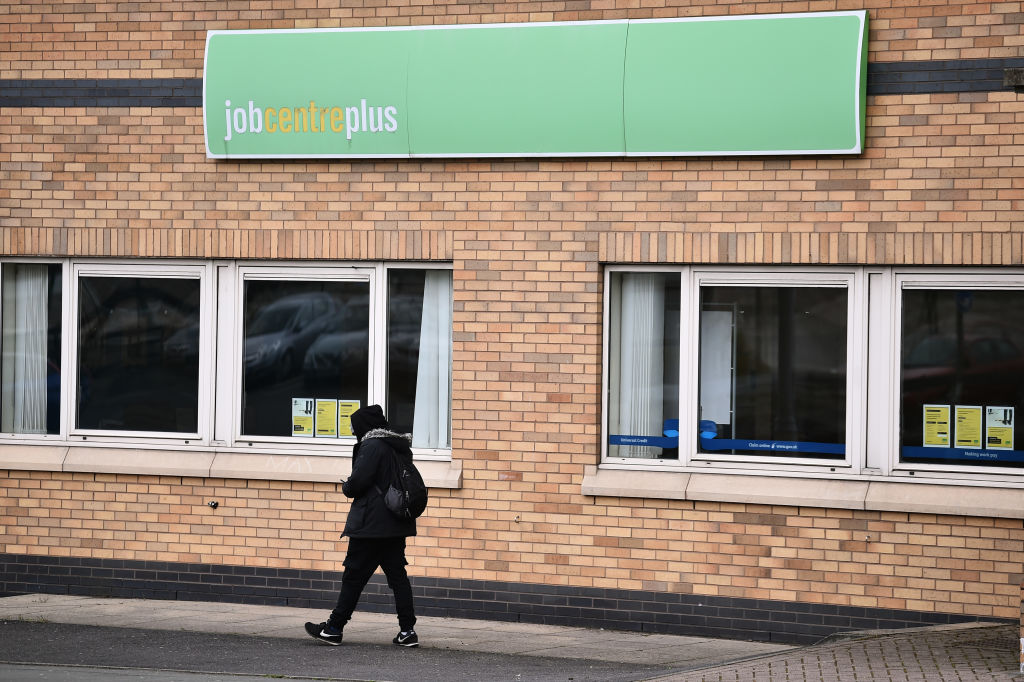Retromania is well and truly upon us. Neil Young just headlined Glastonbury. Noel Edmonds is back on the telly. And a Tory MP has been turned over by a Sunday newspaper in a cash-for-questions scandal. Tonight we’re gonna party like it’s 1997.
The humiliated party this time around is George Freeman, a former science minister in Rishi Sunak’s government. He left frontline politics before frontline politics had the chance to leave him – and he was last heard from moaning in 2024 that he was unable to afford a £2,000-a-month mortgage on his £118,000 ministerial salary.
After that, he found a side-hustle that better answered his needs – advising an environmental monitoring company called GHGSat, which paid him £5,000 a month for just eight hours of work between last April and March this year. When he took the job, he quite properly consulted Acoba, the regulator that presides over the ethics of private-sector appointments for former ministers and civil servants.
GHGSat have said that they ‘retained George Freeman MP for a brief period’ and that their agreement with him ‘did not include any lobbying activities’.
Since Freeman remains a trade envoy and a member of the Science and Technology Committee, Acoba quite properly went out of its way to warn him that given ‘this is a company that is interested in government policy and decisions relating to the civil space sector and emissions… there are risks associated with your influence and network of contacts gained whilst in ministerial office’. Acoba says Freeman specifically assured it that he had ‘made it clear to the company that [he would] not lobby government on its behalf’.
Anyway, now he’s in the soup because the Sunday Times has established that while he was in this company’s employment he appears to have tabled several written questions in relation to the areas of GHGSat’s commercial interests, in consultation with – and in some cases adopting the exact language of – the company’s senior executives. (It’s merely the icing on the cake that he appears to have further contravened ethics rules by using his parliamentary offices to host meetings related to his outside commercial interests.)
Freeman asked his staffer to tick ‘any “interest declaration” box if there is one’, when he tabled the questions, which tells parliament that an MP has asked a question relating to one of their registered interests.
The facts appear to be undisputed. He took money from this company. He was specifically warned against using his position in parliament to the company’s advantage, and he gave undertakings not to. He then went on not only to table several parliamentary questions the answers to which may have been to the potential commercial advantage of this company, but leaked emails show he asked the company’s managing director in writing for advice on ‘what to ask about’.
It’s not just that all this is what the young folk like to call a bad look. It’s the pious inanity of his response that really hoists the old eyebrows. No doubt under the advice of some spin-doctor telling him to ‘get out in front of the story’, he made great show of referring himself to the Parliamentary Commissioner for Standards.
His statement to the Sunday Times when all this came to light was as follows:
As a longstanding advocate of important new technologies, companies and industries, working cross-party through APPGs [All-Party Parliamentary Groups] and the select committee, I regularly ask experts for clarification on technical points and terminology, and deeply respect and try to assiduously follow the code of conduct for MPs and the need to act always in the public interest. Throughout my 15 years in parliament (and government) I have always understood the need to be transparent in the work I have done for and with commercial clients and charities and am always willing to answer any criticism. I don’t believe I have done anything wrong but I am immediately referring myself to the Parliamentary Commissioner for Standards and will accept his judgment in due course.
We can ignore most of that long feather-puffing opening sentence and all the long feather-puffing second one. And at the third, we can laugh aloud with great merriment: here is such a stickler for the rules, such a deep and assiduous respecter of the need for full transparency, that he voluntarily hands himself in to the Commissioner for Standards the moment that his emails are leaked to the Sunday Times.
I imagine transposing the same situation to my own home
The nub of all that bluster and waffle appears to be that his defence to the charge of asking questions on behalf of the company is that he was asking questions on his own behalf and simply consulting the company to help him get the technical language right. These things he was asking about were just things that he, personally, happened to be interested in – or at least thought would serve the public good – and it is the merest coincidence that they are also things that the company which paid him £60,000-odd could stand to profit from.
Perhaps, indeed, this defence stands up. Even parliament is not without its Candide-like innocents. But it seems to me that if he really was all that determined not only to behave with exemplary probity, but to make sure that not a whiff of an ethical lapse should attend him, it might have occurred to him to mention the whole thing to the Parliamentary Commissioner for Standards beforehand. Just, y’know, to know where he stood on the whole thing.
I imagine transposing the same situation to my own home. Let us say I discover (not at all an implausible situation) that the box of chocs I have deposited in the fridge for the teacher’s end-of-term present – and which I specifically told the children not to help themselves to – has vanished. I imagine confronting my daughter.
‘Did you eat the chocolates I told you not to eat?’
‘Certainly not. I should say that as a long-term champion of secondary education and our hardworking teachers, I have from time to time found it appropriate to make sure that no educators are in danger of eating potentially poisoned chocolate.’
‘There’s chocolate wrappers on the floor of your room, and an empty chocolate box in your bin.’
“I have striven, throughout my career as a child and now young adult, at all times assiduously to obey parental instructions, and I have no recollection of knowingly doing anything to contravene them. Filial duty has always been my watchword, and my conscience is clear. But in keeping with my determination to uphold the very highest standards in domestic life, I’m voluntarily referring myself to the independent ombudsman and will accept his judgment in due course.”
‘What are you talking about? There’s literally a smudge of chocolate on your chin.’
‘I don’t think it would be appropriate to pre-empt the findings of the inquiry, do you?’
‘I’m stopping your pocket money for a week.’
‘Actually, I think you’ll need to raise my pocket money to help pay for the independent investigation into the matter. I have always been a firm believer in going through the appropriate procedures.’
Anyway, we’ll await the judgment in due course and lay in some chocs to munch for when the time comes.









Comments